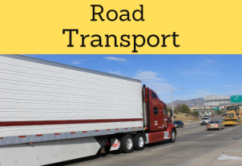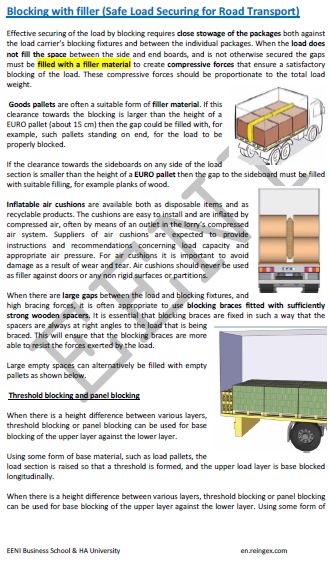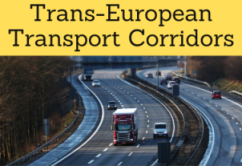Safe Load for Road Transport

International Guidelines on Safe Load Securing for Road Transport (IRU)
- Introduction to the International Guidelines on Safe Load Securing for Road Transport of the International Road Transport Union (IRU)
- Key concepts: regulations, responsibilities, load distribution in a lorry...
- Vehicle Structure: Side walls, Headboard, Rear wall, Stanchions, Lashing points, ISO-Containers, Swap bodies
- Safe packaging techniques for the International Road Transport
- Load Restraining Methods: blocking, lashing, wooden battens, wedges, ropes, blocking bars..
- Check of the load securing

The Subject “International Guidelines on Safe Load Securing for Road Transport (IRU)” belongs to the following Online Programs taught by EENI Global Business School:
Courses: Road transport, Multimodal transport, Transport in Africa.

Diplomas: Foreign Trade, International Transport.

Masters: International Transport, Transport in Africa, International Business, Foreign Trade.
Doctorate: Global Logistics, World Trade.
Languages: 
 Estiba segura de la carga
Estiba segura de la carga
 Arrimage sécurisé des charges
Arrimage sécurisé des charges  Acondicionamento da Carga.
Acondicionamento da Carga.
Sample - International Guidelines on Safe Load Securing for Road Transport (IRU)

International Guidelines on Safe Load Securing for Road Transport (IRU).
A correct stow is essential to avoid accidents, both on the road and in the loading and unloading process of a lorry.
A lorry that carries loads incorrectly represents a real danger that must be avoided, even making the vehicle overturn.
According to the EU, 25% of the Road Transport accidents are related to the improper restraint and / or load distribution in a lorry.
In order to stow correctly, it is necessary an adapted lorry, an special restraining methods (lock, wood runners, belts, fixings, tensioners, nets, ropes) and an optimum load distribution (mass distribution).
Those responsible for the foreign trade of an export company (export manager, area managers...) should know the International Guidelines on Safe Load Securing of the International Road Transport Union (IRU) to be able to stow the cargo safely, avoiding possible accidents, delays, damage to the goods, etc.
The United Nations Convention on the Contract for the International Carriage of Goods by Road (CMR) does not define the mandatory packaging requirements. However, if the cargo is not properly packed or stowed, it exonerates the carrier from any liability in case of damage or loss.
Source: International Guidelines on Safe Load Securing for Road Transport of the International Road Transport Union (IRU).

- Almaty-Bishkek Corridor
- Silk Road
- India-Afghanistan Corridor
- Bangladesh-Myanmar Corridor
- China-Russia Corridor
- China-Pakistan Corridor
- China-Central-West Asia Corridor
- Europe-Caucasus-Asia Corridor
- Corridor of the Ashgabat Agreement
- Trans-Siberian Railway (Russia, North Korea)
- North-South Corridor (India-Russia)
- Afghanistan-Turkey Corridor
- Trans-Caspian Corridor
- East-West Corridor (Myanmar-Vietnam)
- Kyrgyzstan-Iran Corridor
- Islamabad-Istanbul Corridor
- Nanning-Singapore Corridor

Related information:
- Road-Rail Combined Transport
- Containers and Transportation
- Istanbul Convention
- Customs Convention on Containers
(c) EENI Global Business School (1995-2024)
We do not use cookies
Top of this page



